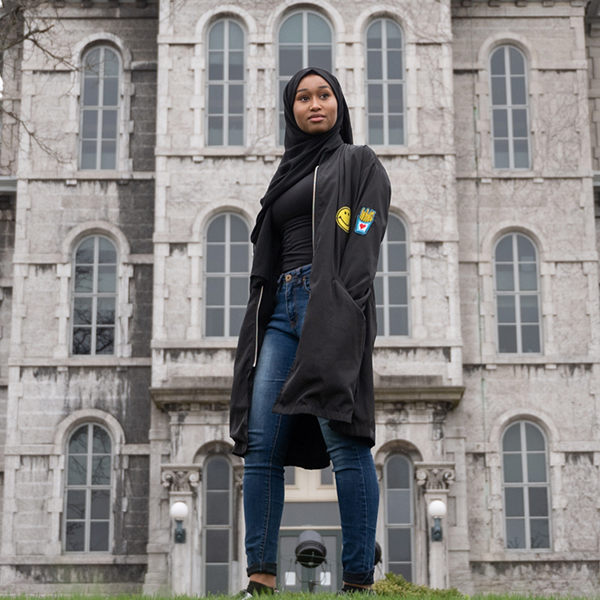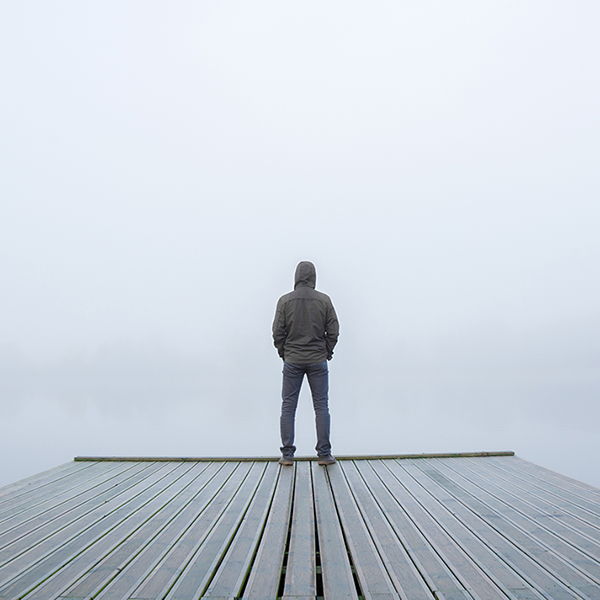
INCLUSION
Exploring the challenges, experiences, and needs of marginalized students.
“My Dorm Room Was a Place That Gave Me Anxiety”
Predominantly white institutions (PWI’s) often fail at supporting students of color — particularly freshmen — and their mental health suffers as a result. But “counter” spaces can help BIPOC students foster community, a sense belonging on campus, and emotional and academic well-being.
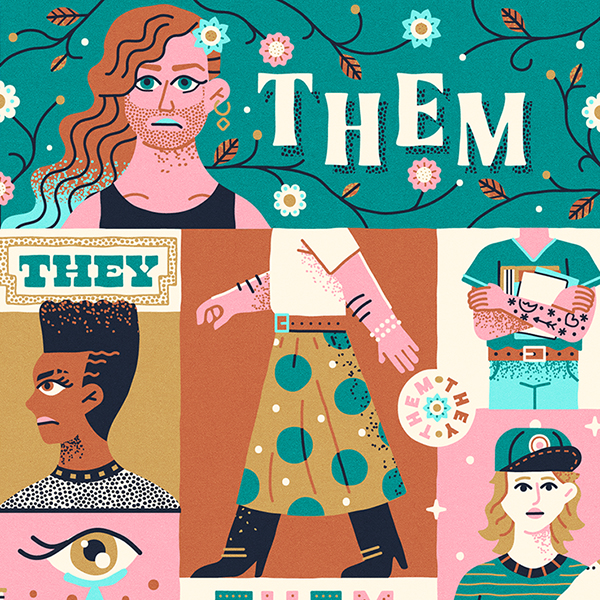
Mean-mugged, Misgendered, and Marginalized
More than half of trans students face debilitating depression (compared to 37% of their cisgender peers). The lack of support and acceptance on campus — from being misgendered by professors and peers to housing decisions that place them with hostile roommates — play key roles.

The Demand for Diverse Counseling Centers
A conversation with Keith E. Smith, a counselor at the University of Vermont and a coordinator of the Men's Outreach, on the importance of recruiting and retaining clinicians who share the experience of interacting with the broader, white-dominant, white-supremist system.

How Tribal Colleges Support Indigenous Well-being
Tribal colleges and universities provide alternatives to Western therapy by fostering learning about Indigenous culture, languages, and traditions that can help students feel more connected to their heritage and help their overall mental well-being.
ACCESS
Technology, information, and initiatives that seek to expand care.
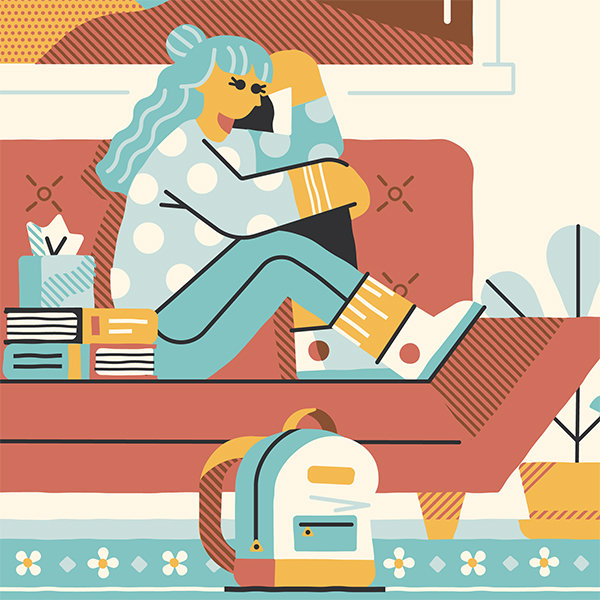
Everything You Need to Know About Therapy in College
From advice on what to do to find a therapist to information on insurance, medication, and book recommendations, this guide helps you take ownership of your mental health.
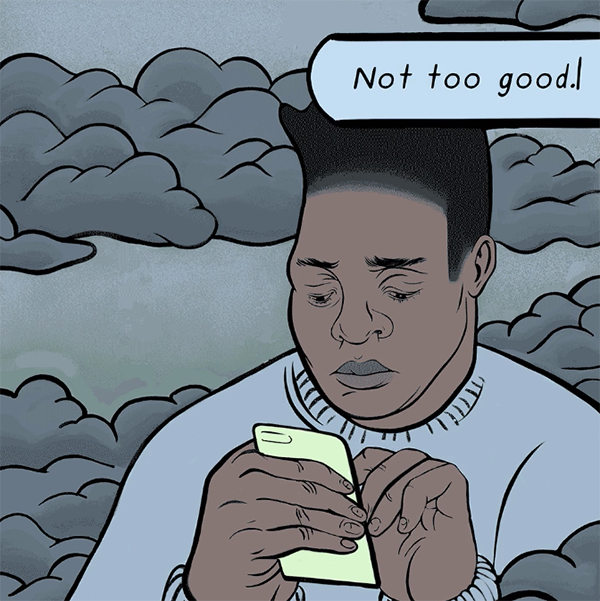
How a Chatbot Helped Me Through My Breakup
Artificial intelligence fuels self-driving cars, your Netflix and Amazon suggestions, and those emails from Starbucks that reflect your caffeinated-drink preferences, but can it help heal a broken heart?
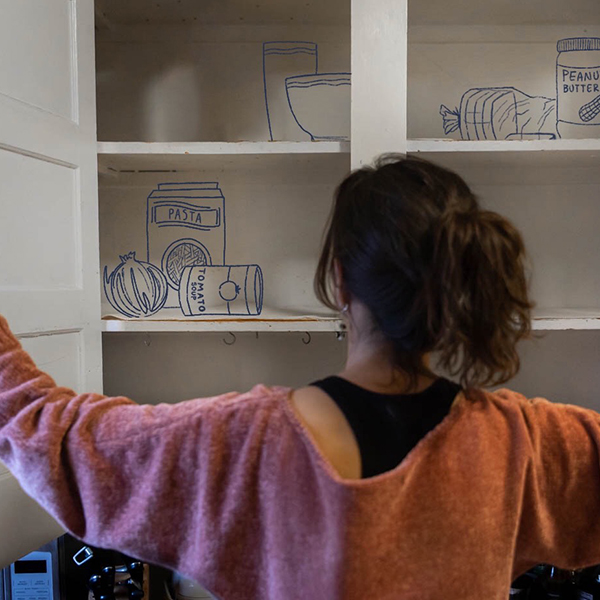
How Food Insecurity Starves Student Success
Nearly one in four college students worry about where they will find their next meal. For some, this constant struggle undermines physical and mental health (along with academic success) in notable ways.
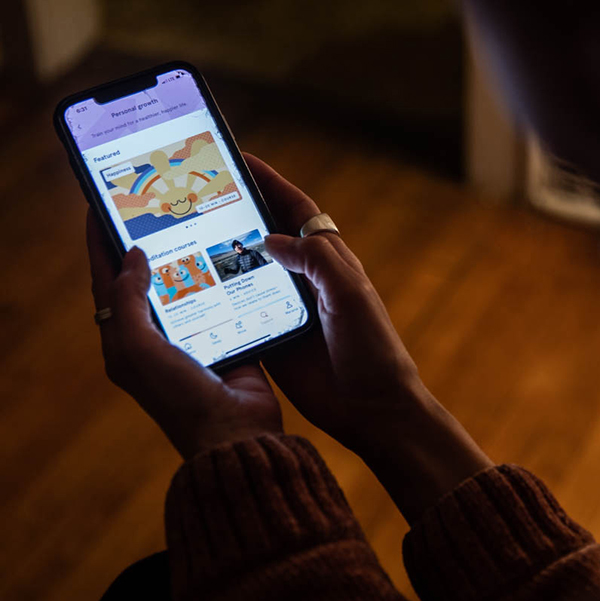
5 Apps To Amplify Happiness, Squash Stress
These digital resources provide tools and techniques to help you eliminate negative thoughts, combat stress, and guide you toward a happier mindset.
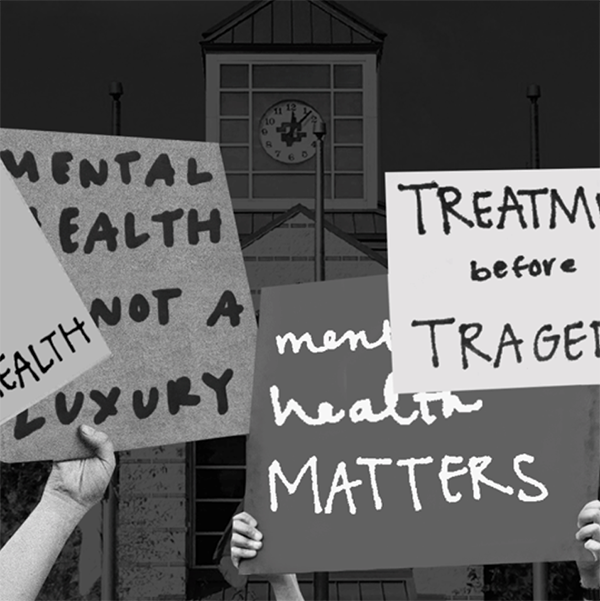
The Trouble with Community College Resources
They face the same mental-health challenges as their four-year peers. But the support they receive varies across the country — from a complete cut of on-campus services to a multimillion-dollar pledge of support.
FACES
People who illuminate the struggles among us.
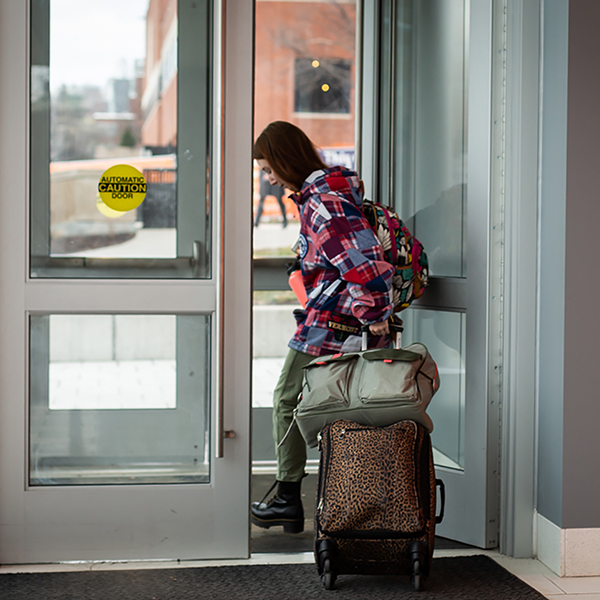
The Challenges Faced by Those Who Take a Mental-Health Leave of Absence
About 75% of lifelong mental-health conditions begin by age 24, according to the National Alliance on Mental Illness. When those challenges force college students to leave, the path back can feature a lot of unknowns, unexpected consequences, and stigma.
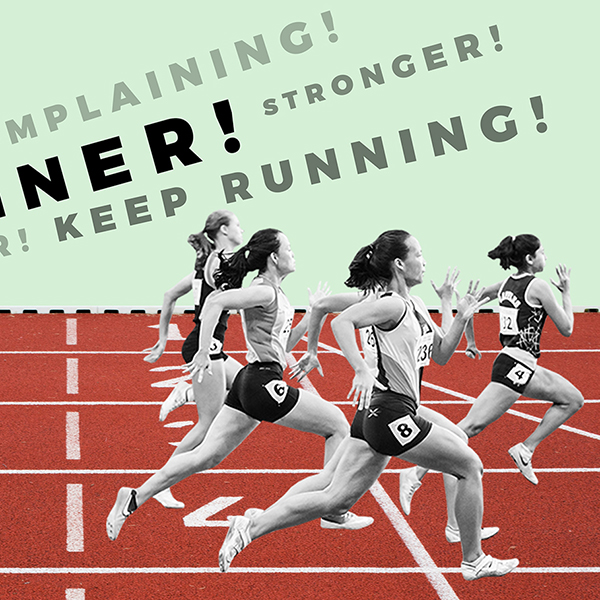
How Sports Culture Undermines Athletes Long After They Graduate
Within the world of sports, it is common for athletes to suffer silently from the pressure of performance perfection, revealing uniforms, media attention, body shaming, and a culture that nurtures eating disorders, all of which increases their risk of developing a mental disorder that can stay with them long after their sports careers end.

Meet the Woman Who Named Our Environmental Angst
The psychiatrist who coined the term “climate-linked pre-traumatic stress” to refer to our anxiety regarding the environment talks about the origins of this condition, how to combat it, and why you should reconsider not having children just because the earth is a dumpster fire.
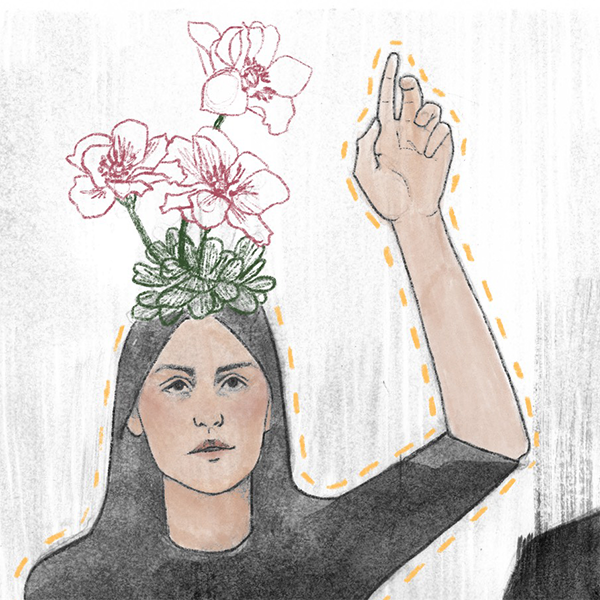
Attrition Issue: Why Students with Autism Drop Out
The academic and social pressures of college present challenges — social isolation, the need for self-advocacy, and a lack of informed services and support — that can undermine their mental health and force them to leave.
BIG IDEAS
Issues, concepts, and solutions for collegiate mental-health struggles.
How the Media, Statistics Twist the Story of Suicide on Campus
News reports continue to tout a “suicide epidemic” on college campuses, but while the rate for the general popultion continues to rise, there’s no evidence that’s happening for college students. In fact, statistically speaking, college can save lives. But universities need greater funding and treatment capacity at counseling centers, where students who struggle with suicidal thoughts continue to stream in.

7 Ways College Undermines Students’ Mental Health
There’s more to the story of the mental-health crisis on college campuses than a dramatic increase in anxious, stressed students. The academy itself — from 18-credit semesters to soul-crippling debt, finals, and the pivot to leadership development — contributes to the issue in notable ways, experts explain.
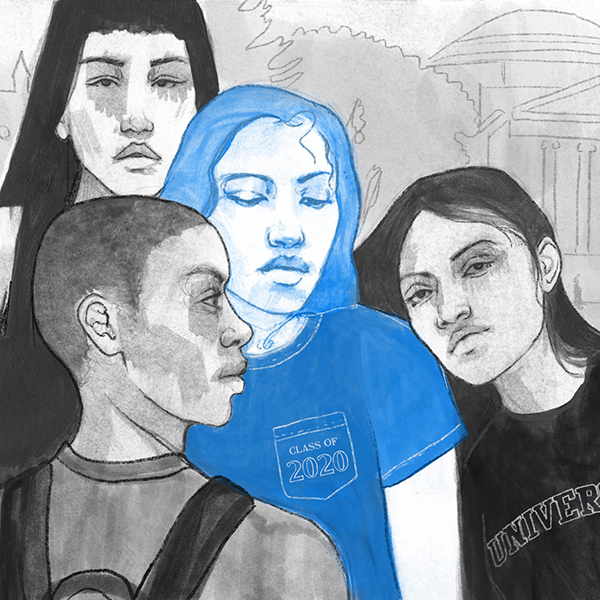
Why Haven’t Sexual-Assault Statistics Improved?
Despite decades of protests and programming, blue lights, and self-defense classes, one in four women still will experience a sexual assault during their college career. And yet the one prevention tool proven to be effective at reducing that number remains a rarity at universities.

Building Recovery in Solo Cup Land
Universities and students team up to fight drug and alcohol addiction and the discriminatory culture surrounding it by creating collegiate recovery programs.
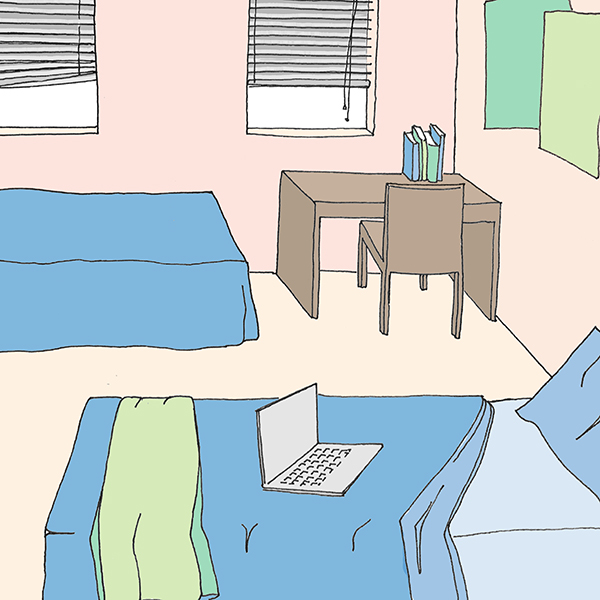
How Living Spaces Impact Headspaces
Student housing informs sleep, transportation, maintenance, and social interaction, which means it plays a key role in mental-health stressors.
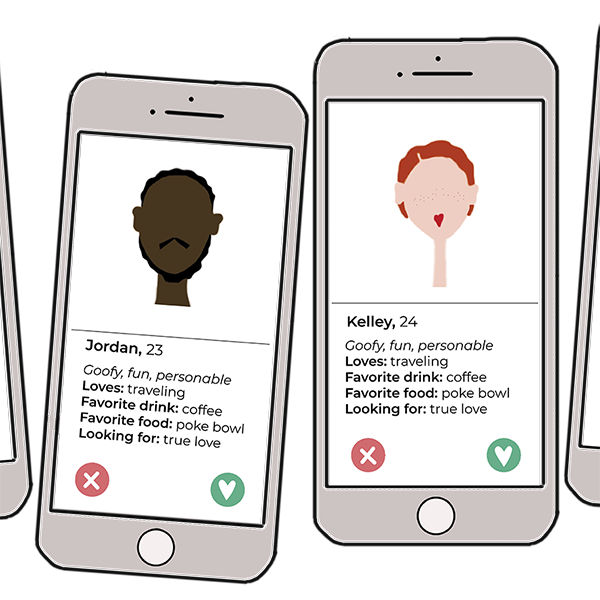
News Flash: Tinder Messes with Your Mind
Thanks to the evolution of digital dating, those lovelorn interactions may harm you beyond that bruised ego.

7 Ways College Undermines Students’ Mental Health
There’s more to the story of the mental-health crisis on college campuses than a dramatic increase in anxious, stressed students. The academy itself — from 18-credit semesters to soul-crippling debt, finals, and the pivot to leadership development — contributes to the issue in notable ways, experts explain.

Why Haven’t Sexual-Assault Statistics Improved?
Despite decades of protests and programming, blue lights, and self-defense classes, one in four women still will experience a sexual assault during their college career. And yet the one prevention tool proven to be effective at reducing that number remains a rarity at universities.
